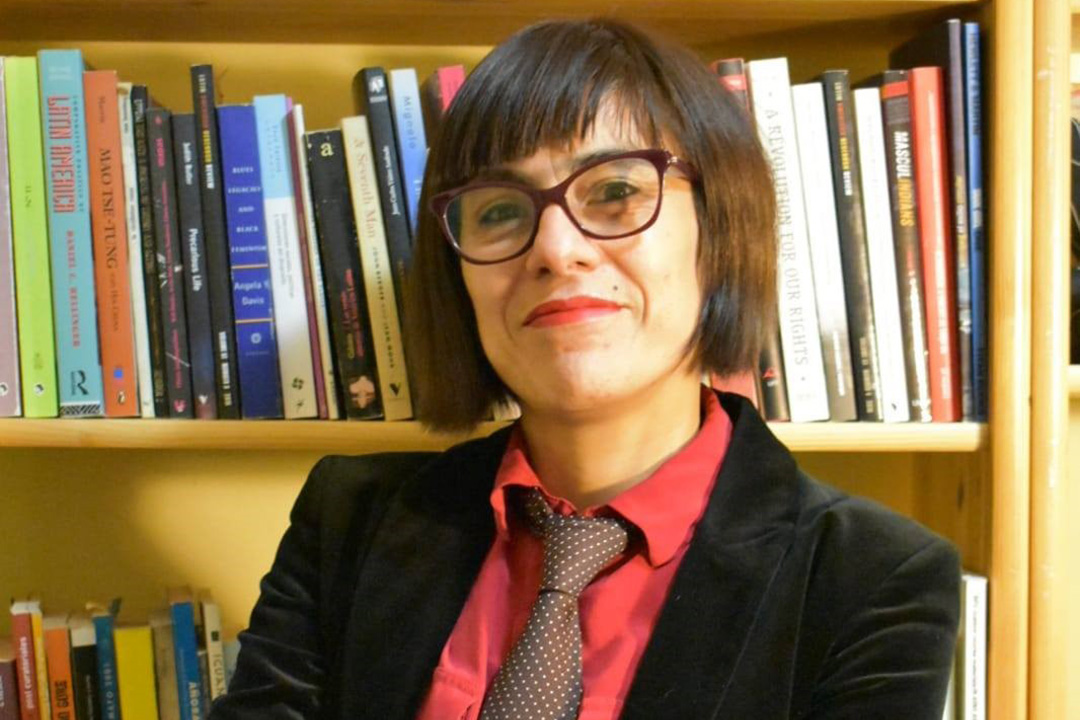
Building a better College of Medicine
Dr. Manuela Valle-Castro (PhD) is looking to help build a better College of Medicine at the University of Saskatchewan (USask) by addressing complex issues like racism and equity.
By Kristen McEwen“My huge focus is helping the college to think of itself as an institution, identify its history about the systems, cultures and policies we have inherited,” she said. “We have to take a dispassionate approach and look at how we inherited systems that were absolutely designed to exclude women and people of colour, there’s no question about that.”
The college’s new director of the Division of Social Accountability (DSA) noted that instead of blaming and placing responsibility on individuals, the focus needs to shift to system accountability.
“When you look at portraits of past deans in the college, there are only one type of people in those pictures—and that wasn’t an accident,” she added. “We inherited a racist, sexist, elitist system. What do we do with this system now?”
To address these systemic issues, Valle-Castro will be using tools already available, such as anti-racism and anti-oppression teaching strategies.
“Anti-racism is a strategy that allows us to develop a systematic way of thinking about policies, working cultures, hiring practices within the college,” she said.
Valle-Castro, who joined the college in October, is well-suited to her new role. With a PhD in Gender, Race, Sexuality and Social Justice from the University of British Columbia (UBC), she has extensive experience in developing and delivering anti-racist and anti-oppressive materials, through her position as a co-ordinator for the Saskatoon Anti-Racism Network since 2017.
Although, her interest in these societal issues started long before she arrived in Canada to continue her education. Valle-Castro was born and grew up in Chile, with a Mestiza (Spanish-Italian and Afro-Indigenous) background. From 1973 to 1990, Chile was under the rule of an authoritarian military dictatorship.
“I grew up in a very Catholic, sexist country, in the middle of a military dictatorship,” she summarized. “Growing up as a woman in that environment, I just thought that I was weird because I was angry and couldn’t believe the things I was expected to be and do as a girl.”
“Also, in general, how those ideas about gender are impacting the distribution of power, wealth and violence in our society,” she added.
Valle-Castro’s mother, who was involved in politics and the human rights movement in Chile, was an inspiration that sparked her interest in social justice issues impacting women. Valle-Castro became a community psychologist and organized and completed research evaluations because of her investment in gender-related issues—the difference between gender equality and gender equity.
At UBC, Valle-Castro explored how systems in our society intersect to generate different gender inequities.
“It’s well-researched and documented how we still have a very homophobic, transphobic and heteronormative society,” she said.
For example, transgender youth are overrepresented in rates of suicide, homelessness, poverty and violence, she noted.
“There is a problem in the way we have set up systems to interact with people, where they’re falling through the cracks and their existence is not being accounted for.”
Systems are well-engrained in all of us, and while we can’t individually be blamed for these systems, we have to recognize our participation in the continuation of these systems, she said.
“How do we create this shift in our system to produce different outcomes?” she asked. “We need to build capacity internally and build a language to talk about creating equity. We want to create a framework, a way of looking at equity that makes sense to people.
“We can create better institutions, more diverse institutions that better serve communities—institutions that are safer for women, safer for Indigenous students, for everybody.”

